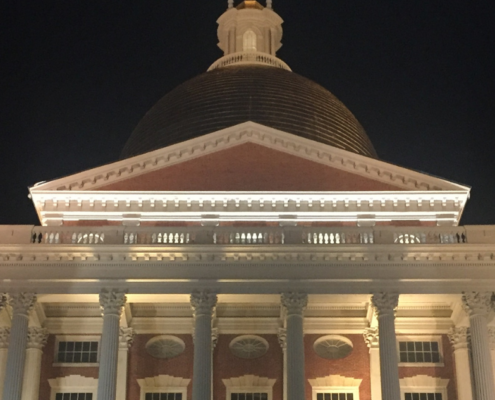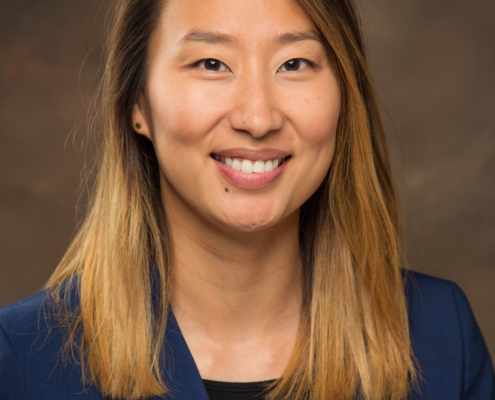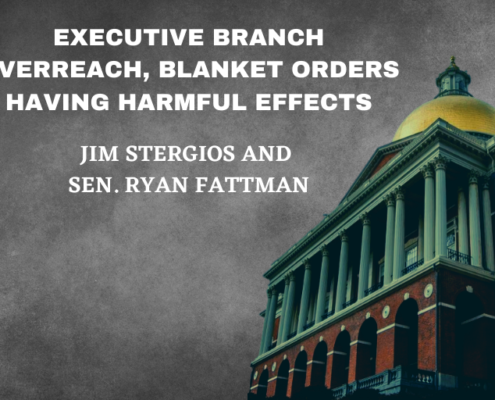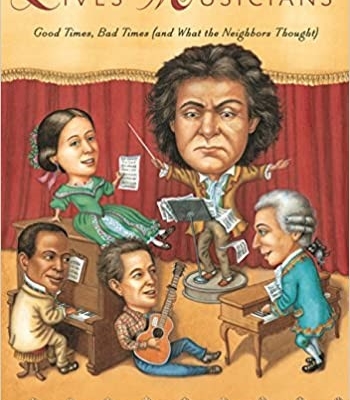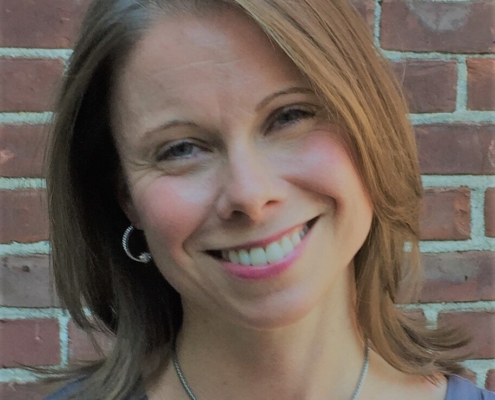Study: Safely Reopening Office Buildings Will Require Planning, Innovation
Managers need to enable efficient operations, follow social distancing guidelines
BOSTON – Safely bringing employees back into workplaces presents a significant challenge for employers located in office buildings, particularly when it comes to elevator operations and building entry and exit. To address the challenge, managers must develop plans to control the flow of workers, according to a new study published by Pioneer Institute.
“Balancing necessary social distancing guidelines and the need for employees to efficiently access offices will require innovation and careful planning,” said Rebekah Paxton, author of “Going Up: The Challenge of Reopening Shared Office Buildings in a COVID-19 World.”
May 25 was the official opening date for most Massachusetts office buildings—albeit with considerable conditions set forth in government guidance documents, while Boston buildings reopen on June 1.
Looking internationally, the One Canada Square building in London anticipates it can accommodate the expected volume of tenants and guests by moving up to 7,500 people per hour. To do so, building managers have developed a system of designated doorless entry and exit to the building, elevators operated by PPE-equipped staff, and an estimated four-to-six-person elevator occupancy limit.
One Canada Square, with its 32 elevators that serve 50 floors, underscores a challenge for some of Boston’s most iconic properties. Boston’s Prudential Tower, for example, has 18 elevators serving 52 floors, according to a database compiled by The Skyscraper Center. This may result in bottlenecks in the time of COVID-19.
Massachusetts’ reopening guidelines call for a limit of 25 percent of maximum workplace occupancy to limit the number of people entering office buildings and minimize back-ups in hallways, stairwells and elevator banks. State recommendations specific to general office buildings advise managers and employees to “minimize use of confined spaces (i.e. elevators) by more than one individual at a time.” On Friday, May 29, the City of Boston released a “Return to Workplace Framework for Commercial Spaces,” which encompasses existing guidelines provided by the state for office buildings, and additionally limits elevator capacity to no more than four individuals at a time.
Employers are also developing a range of ways to manage reopening challenges. Qualtrics, which has 25 offices across the United States, is identifying volunteers to take the stairs. New York City-based Interpublic is taping social distancing blocks on elevator floors to show how many people can safely ride at once. But a company official cautioned that this would translate to “two-to-three hours” to get all employees to their desks at one Interpublic location.
Technology can help address the challenge, and the report highlights examples of how various technologies can help facilitate the safe movement of individuals in multi-story buildings. For example, Otis, an elevator technology company in London, provides apps that allow customers to call elevators with smartphones. QLess, a California-based app developer, provides apps that facilitate remote line formation, where users can be given an elevator wait time, during which they can be outside the lobby or even in their cars.
For social distancing and workplace efficiency to coexist successfully, Paxton urges that all those who can work from home continue to do so, and that employers implement flexible in-office days and staggered scheduling for those needing to access physical offices.
ABOUT THE AUTHOR
Rebekah Paxton is a Research Analyst at Pioneer Institute. She first joined Pioneer in 2017 as a Roger Perry intern, writing about various transparency issues within the Commonwealth, including fiscal policy and higher education. Since then, she has worked on various research projects under PioneerPublic and PioneerOpportunity, in areas of state finance, public policy, and labor relations. She recently earned an M.A. in Political Science and a B.A. in Political Science and Economics, from Boston University, where she graduated summa cum laude.
ABOUT PIONEER
Mission
Pioneer Institute develops and communicates dynamic ideas that advance prosperity and a vibrant civic life in Massachusetts and beyond.
Vision
Success for Pioneer is when the citizens of our state and nation prosper and our society thrives because we enjoy world-class options in education, healthcare, transportation and economic opportunity, and when our government is limited, accountable and transparent.
Values
Pioneer believes that America is at its best when our citizenry is well-educated, committed to liberty, personal responsibility, and free enterprise, and both willing and able to test their beliefs based on facts and the free exchange of ideas.
Get Our COVID-19 News, Tips & Resources!
Related Posts




